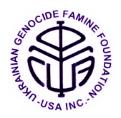Annex
|
To incorporate (a country or other territory) within the domain of a state; to obtain or take for oneself.
|
Assimilate
|
To make similar; to absorb into the culture or mores of a population or group.
|
Atheist
|
One who believes that there is no God.
|
Authoritarian
|
Characterized by or favoring absolute obedience to authority, as against individual freedom: an authoritarian regime.
|
Collectivization
|
To organize (an economy, industry, or enterprise) on the basis of collectivism (the principles or system of ownership and
control of the means of production and distribution by the people collectively, usually under the supervision of a
government.)
|
Communism
|
A system of government in which the state plans and controls the economy and a single, often authoritarian party holds
power, claiming to make progress toward a higher social order in which all goods are equally shared by the people; the
Marxist-Leninist version of Communist doctrine that advocates the overthrow of capitalism by the revolution of the
proletariat.
|
Despotism
|
A government or political system in which the ruler exercises absolute power.
|
Dictator
|
One holding complete autocratic control; one ruling absolutely and often oppressively
|
Disinformation
|
Deliberately misleading information announced publicly or leaked by a government or especially by an intelligence agency
in order to influence public opinion or the government in another nation.
|
Displaced Person ("D.P.")
|
One who has been driven from one's homeland by war or internal upheaval. Often the term "D.P." is used in a derogatory
manner to insult such people.
|
Dissident
|
One who disagrees; disagreeing especially with an established religious or political system, organization, or belief.
|
Expropriation
|
To deprive of possession; the action of the state in taking or modifying the property rights of an individual in the exercise of
its sovereignty
|
Genocide
|
The deliberate and systematic destruction of a racial, political, or cultural group.
|
Gulag
|
A network of forced labor camps or prisons in the former Soviet Union, especially for political dissidents; a place or situation
of great suffering and hardship, likened to the atmosphere in a prison system or a forced labor camp.
|
KGB
|
The intelligence and internal security agency of the former Soviet Union; Russian Komitet gosudarstvennoi bezopasnosti
(Soviet) State Security Committee.
|
Komsomol
|
Russian, from Kommunisticheskii Soyuz Molodezhi Communist Union of Youth; a Russian Communist youth organization.
|
Kulak
|
A farmer characterized by Communists as having excessive wealth; an independent land owner in Ukraine with as little as
25 acres.
|
Nationality
|
The status of belonging to a particular nation by origin, birth, or naturalization; A people having common origins or
traditions and often constituting a nation; Existence as a politically autonomous entity; national independence; National
character.
|
Reparation
|
Compensation in money or materials payable by a defeated nation for damages to or expenditures sustained by another
nation as a result of hostilities with the defeated nation.
|
Samizdat
|
The secret publication and distribution of government-banned literature in the former Soviet Union.
|
Slave Labor Camp
|
A prison camp where forced labor is performed.
|
Totalitarian
|
Of, relating to, being, or imposing a form of government in which the political authority exercises absolute and centralized
control over all aspects of life, the individual is subordinated to the state, and opposing political and cultural expression is
suppressed.
|

